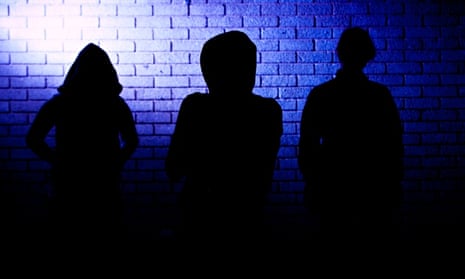When I was 13, my doctor sat me down and told me that I was HIV-positive. Sitting next to me, my mum was silent, in denial of the virus that she had unknowingly passed to me. People often say that when they discovered their HIV-positive diagnosis they thought they were going to die. Not me. I was numb, confused, but at 13, I didn’t know enough to be scared.
Within a year, I was very unwell in hospital. I wasn’t sticking to my HIV medication. With support from doctors and Teen Spirit, the group for teenagers run by HIV charity Body & Soul, I realised that I had to make a decision to stay healthy. Everyone makes choices about their health, but at 14 I needed to have the maturity to recognise that the choices I made would directly influence whether I would be here in the future.
It’s usual for young people living with HIV to have a tricky relationship with medication. I take three different pills, with food, every morning. It’s hard to explain if you haven’t been there, but it can feel like a chore, a daily reminder that there is something “wrong”. I don’t take for granted that I have access to medication and world-leading healthcare. There are millions who don’t have the same freedom to make plans for the future. As a person living with HIV, I’m grateful for the life that medication gives me.
At Body & Soul, I’ve met a lot of HIV-positive people my own age who found it impossible to open up at school but I never felt that. At school, I was the joker at the centre of the action and I forgot about HIV, denied it really. This was easy because my friends never mentioned HIV apart from the occasional Aids “joke”, which really hurt coming from people I loved. I went to school in an east London borough with one of the country’s largest HIV-positive populations but it was never discussed in class either.
Coming to terms with my diagnosis was a gradual process that continues as I face new challenges. Now I’m independent, employed and in control of my life and health (both are excellent). But things can still be tough. Remember the nervous excitement of new relationships when you were 19? The spark when someone likes you back? Imagine being in that position and not acting on it because the alternative – having that conversation – is too scary to contemplate.
When I was younger, I swore I would never disclose my status to anyone. But I grew older and decided that HIV wasn’t going to define me. Before I told my first boyfriend, I was terrified but all he said was: “I always knew something was up.” I had a relationship. I told him. And he was OK. I read back those words and they make me smile. In the end, it didn’t work out, but how many teenage relationships do?
In the UK, 6,000 people were diagnosed HIV-positive last year and 26,100 people are unaware that they are HIV-positive. Is the annual media and education push on World Aids Day working? If I, an HIV-positive teenager recently out of school, have no memory of HIV education, is it surprising that HIV is still surrounded by misunderstanding and prejudice that leads to further infections and makes life harder for people living with HIV? My medication, my family and places such as Body & Soul have made life much easier but something radical needs to happen to remove the fear, stigma and silence around HIV.
